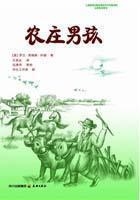Price Exchange gives rise to a phenomenon which, originating from value, reacts upon it in the most powerful manner; this phenomenon is price. It is not our task here to deal either with price or with the forms of value depending on it. Our concern --as will be shown clearly enough later on -- is rather to describe natural value; i.e. value as we should find it in a community at a high stage of development carrying on its economic life without price or exchange. Nevertheless it will not do simply to disregard exchange and the forms of value connected with it. Adescription of social conditions whose actual or possible realisation is extremely doubtful, would be somewhat purposeless, if the description did not admit of some applications to life as we know it. Now to make these applications we must understand price and exchange value to the extent of rendering a comparison possible. At the least their general outlines must be indicated, so as to serve as background against which the clearer picture of natural value, which we intend to draw, will stand out in relief.
In this way we shall be able to judge whether the fundamental features in both contrast or agree.
For this purpose it will be sufficient to describe that particular case of the formation of price in which its peculiar principle can be most clearly discerned. This is at the same time the normal formation of price under the organised division of labour. On the one side, we have numerous sellers, whose aim is the sale of stocks which they have produced for the market, and which they could not possibly use themselves; on the other side, we have numerous buyers who compete with each other in buying, just as the others compete in selling. Menger's theory of price, and that contained in Bohm-Bawerk's Werth, which goes considerably farther, may be used as starting-points for our own statement. Into any further consideration of the abundant literature existing on the subject of price our present task will not permit us to enter.
Suppose a person wishes to acquire an object, no matter what, he will not, however strong his desire, agree to pay any price that may be asked. There is a certain maximum at which he would rather withdraw from the market than raise his offer further.
This maximum is determined by two valuations: first, the value in use of the good that is to be acquired (which will be determined according to the laws laid down in the previous chapters), and, second, the exchange value of the sum of money that will have to be paid (the estimate of which will be considered in the next chapter). The sum of money whose exchange value is equal to the value in use of the desired good, determines the maximum offer.
To offer more would involve a loss, as more value would be given than received. This rule holds equally for all would-be buyers without exception. Every one who thinks of making a purchase puts both these valuations before him; establishes in his own mind this equation or equivalence; and comes to the market resolved not to go beyond it. But although the rule is the same for all concerned, the results of its application in the individual case are very unequal, inasmuch as the amounts that enter into the calculation differ greatly from each other. The value in use of the good that one buys will vary according to the different degree of individual need -- which may depend on natural inclination, on accidental circumstances, or on the degree of satisfaction already reached -- and according to the amount of supply one already has. The exchange value of the money, on the other hand, will vary principally according to the amount of the person's wealth (see on this subject the following chapter). When one considers the very great variety of possible economic situations, it will be seen that the equation or equivalence of both values cannot fail to be very different from buyer to buyer.
The highest offer can be made by the person who is actuated by the strongest desire, and is at the same time the richest, because for him the highest real value is expressed in the greatest sum of money. What a contrast from the offers of poor men, in whose case the same degrees of desire are represented only by a most trifling sum of money, or from the bids of those whose desire, in the particular case, is so slight that they do not care to set apart anything but a small sum towards its satisfaction!
If we begin with the highest equivalent, that of the man who is the richest and the most anxious to obtain the goods, and come down gradually to the lowest, we shall obtain a descending scale of maximum offers. By way of example we shall assume that these range, in the hands of a hundred purchasers, from ? down to 1s.;and we shall assume, first, for simplicity's sake, that each purchaser is desirous to buy only one single good or one single item.
Here we can see clearly what is the power that must decide the competition of prices. A skilled seller may at times succeed in inducing an inexperienced buyer to pay a price which goes beyond his maximum; but, as a rule, the sellers will not be able to do more than drive the buyers to their maximum. The endeavour of a seller, who is honest but looks to his own advantage and acts purely according to his own interest, will be to find out those, among all the buyers, who can pay most, and to drive them, if possible, to the margin of their purchasing power. On the other hand, the would-be buyers will try to buy as much below that as is possible. The inter-competition of buyers, therefore, is to the advantage of sellers, and the inter-competition of sellers is to the advantage of buyers. We shall now see how far it is possible for each side to achieve its object. We assume as before that the sellers are forced to get rid of the entire quantity of goods they have brought to market, aid have no wish to reserve any part of it for their own use, the goods having been produced for sale and being of no personal use to the sellers.














